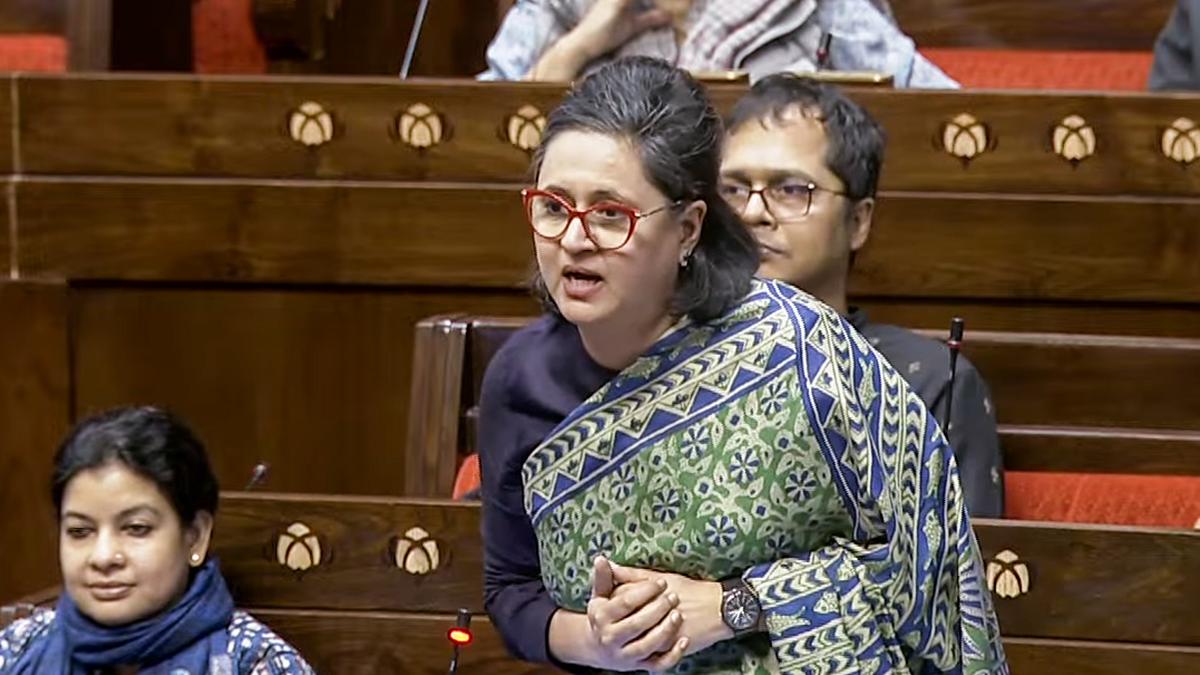 |
|
The aftermath of the Kumbh Mela stampede has ignited a fierce political battle in India's Parliament. Opposition parties are vehemently accusing the ruling Bharatiya Janata Party (BJP) government, both at the national and Uttar Pradesh state levels, of a massive cover-up regarding the true number of casualties. While official figures cite a death toll of approximately 30, opposition members have presented drastically higher estimates, reaching as high as 2,000 fatalities. This discrepancy has fueled a heated debate, raising serious questions about transparency and accountability in the government's handling of the tragedy.
Shiv Sena (UBT) MP Sanjay Raut's explosive claim of 2,000 deaths during the Rajya Sabha debate on the Motion of Thanks to the President's address triggered immediate outrage from the treasury benches. His assertion, echoing similar claims by Congress President Mallikarjun Kharge who referred to 'thousands' of deaths, painted a starkly different picture of the event than the official narrative. This stark contrast has not only fueled political tensions but also raises crucial questions about the effectiveness of crowd management and emergency response protocols during the religious gathering.
The accusations extend beyond simply disputing the official death toll. Opposition members like Congress's Ranjeet Ranjan leveled serious allegations of a deliberate attempt to conceal the extent of the tragedy. Claims of bodies being kept in a room for hours before being taken to hospitals as 'injured' and subsequently disappearing, coupled with allegations of forcing individuals to sign documents claiming natural deaths, point towards a systematic effort to downplay the scale of the disaster. These accusations paint a grim picture of potential negligence and a deliberate attempt to suppress the truth, further exacerbating the political fallout.
The controversy is not limited to the upper house. In the Lok Sabha, similar allegations were raised, with Independent member Pappu Yadav adding a controversial dimension to the debate. While quoting an unnamed monk, Yadav’s suggestion that those who perished achieved salvation sparked further controversy and highlighted the wide range of perspectives surrounding the incident. His provocative comments, while controversial, underscore the deep-seated distrust and anger felt by sections of the population towards the government's handling of the event.
The opposition's consistent focus on 'poor management' characterizing the Kumbh Mela as a 'political event for political marketing' underscores a broader critique of the government's priorities. They allege a failure to prioritize the safety and well-being of pilgrims, prioritizing instead political gains and optics. The accusations of hiding bodies and manipulating the official death toll are serious charges, demanding a thorough and independent investigation. The demand for a ban on VIP visits during such large-scale religious events reflects concerns about the disruption caused by VIP movements, potentially contributing to overcrowding and the risk of stampede incidents. The government's response to these accusations will be crucial in determining the future of public trust and accountability.
The Kumbh Mela stampede tragedy has transcended the realm of a simple accident. It has become a symbol of the larger political battle playing out in India. The conflicting narratives regarding the death toll expose a fundamental breach of trust between the government and a substantial portion of the population. The accusations, if proven true, would represent a significant failure of governance and would necessitate significant reforms in crisis management and transparency. The coming weeks and months will be critical in determining the course of the investigation and whether the government will address the opposition's concerns with transparency and accountability.
The ongoing political fallout extends beyond immediate accusations. It raises fundamental questions about the government's responsibility in safeguarding the lives of its citizens during mass gatherings. The need for robust crowd management strategies, effective emergency response mechanisms, and transparent communication in the aftermath of tragedies cannot be overstated. The Kumbh Mela tragedy serves as a stark reminder of the potential consequences when these fundamental principles are neglected. The long-term impact will depend not only on the official response to the accusations but also on the broader reforms undertaken to prevent similar tragedies in the future.
Ultimately, the Kumbh Mela stampede is more than just a tragic incident; it is a profound test of governance and accountability. The starkly contrasting narratives presented by the government and opposition highlight the need for a thorough, independent, and transparent investigation into the event. The outcome of this investigation will not only determine the truth behind the death toll but will also have significant implications for the government's credibility and the public's trust in its ability to effectively manage large-scale events and respond responsibly to national crises.
Source: Government hiding Kumbh stampede death toll: Opposition
